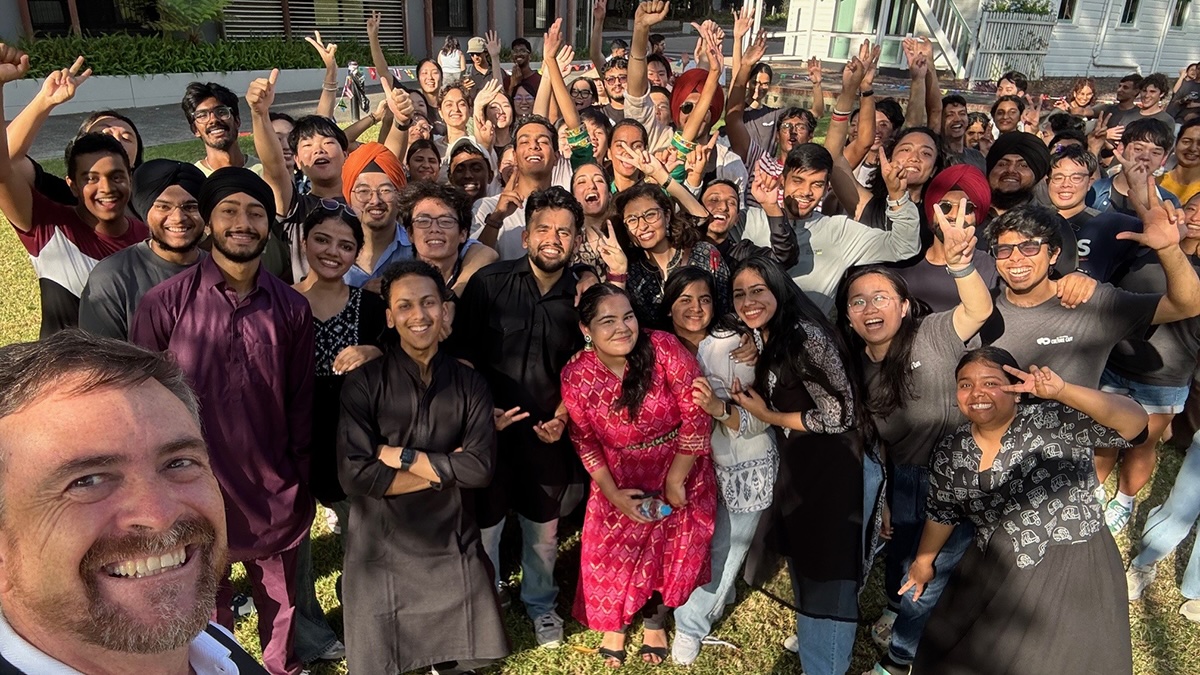
Dear colleagues
It has been another busy fortnight for the UNSW community, filled with remarkable achievements and activities that continue to impress and inspire me. In this edition of Inside UNSW, you’ll find a diverse collection of stories that showcase the passion, dedication and innovation driving our students and staff every day. I’m also happy to share some of the vibrance and colour of the UNSW community in this newsletter. Taking part in the Holi celebrations over the weekend, and a chance meeting with the Punjabi Society while walking across campus en route to a meeting are recent campus highlights for me.
QS Subject Rankings place 45 UNSW subjects in global top 100
UNSW improved its strong position in this year’s QS Subject Rankings with 45 subjects in the global top 100 (up from 42 last year), 24 subjects in the top 50 (up from 19 last year) and two subjects in the top 10. Mineral and Mining Engineering maintained its position as our University’s highest-ranking subject at 2nd worldwide, followed by Petroleum Engineering ranked 10th globally.
I’m proud of our outstanding UNSW community members who have contributed to these achievements. This year’s results reaffirm UNSW’s leadership in research and teaching, as well as our commitment to educating graduates who tackle society’s complex challenges. Our rise in the subject rankings enables us to continue to attract the world’s best researchers, educators and students and drive positive change. Read more on the UNSW Newsroom.
e61-UNSW Policy Research Partnership
Last Thursday, UNSW launched a policy research partnership with the e61 Institute, which specialises in economic policy research. I was pleased to speak at the launch about how the collaboration will assist policymakers to create public policy based on evidence, rigorous thinking and analysis that advances the social and economic prosperity of our country.
Policymakers have one of the toughest jobs in society. They need to balance competing interests, long and short-term societal needs, and address intricate challenges that often lack clear-cut solutions but with pressure to make rapid decisions with no evidence base. The e61-UNSW Policy Research Partnership aims to break down that complexity and provide the latest research and most robust evidence for policymakers to draw on.
The partnership brings together UNSW’s leading researchers with experts at the e61 Institute to generate policy ideas grounded in evidence. Evidence-based public policy and advocacy are essential to address today’s complex economic and social challenges, like equitable access to housing, employment opportunities and cost-of-living pressures. The e61-UNSW Policy Research Partnership’s first report, released last week, highlights five economic themes that will shape Australia’s policy debate in the coming years. Read more on the UNSW Newsroom.
Food Hub expands its reach
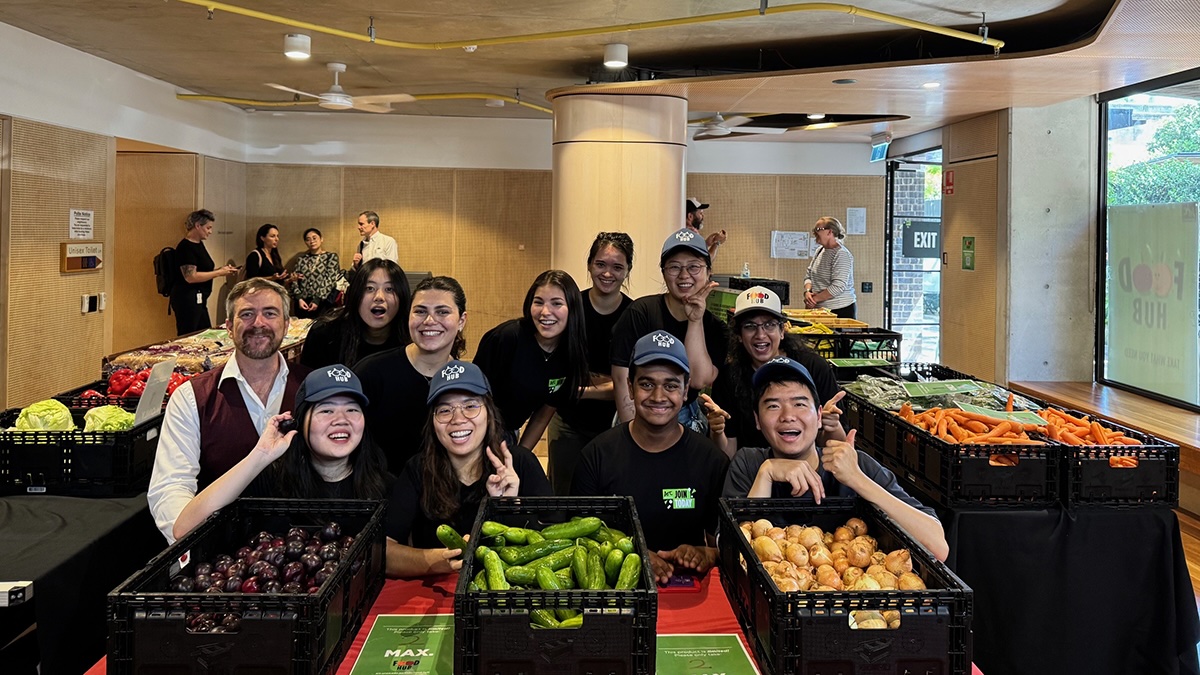
UNSW Vice-Chancellor and President Professor Attila Brungs with volunteers from Arc celebrating of the launch of the Food Hub in Darlinghurst.
It was a pleasure to be part of the recent Food Hub launch at the Darlinghurst Community Space. The Food Hub originally began at the Kensington Campus during the COVID-19 pandemic, starting with just 50 bags of vegetables. It’s seen incredible growth and become an essential resource for students. This growth is a testament to the hard work and dedication of the amazing volunteers at Arc, who now distribute more than 1000 meals a week! I enjoyed meeting some of these inspiring volunteers at the launch. I’m excited to see this program expand to support students at our Paddington Campus, providing free, nutritious food to students and residents in the Darlinghurst area. The initiative highlights the impact of collaboration, with our students, University and local council working together to create positive change for the community.
Celebrating a rich culture
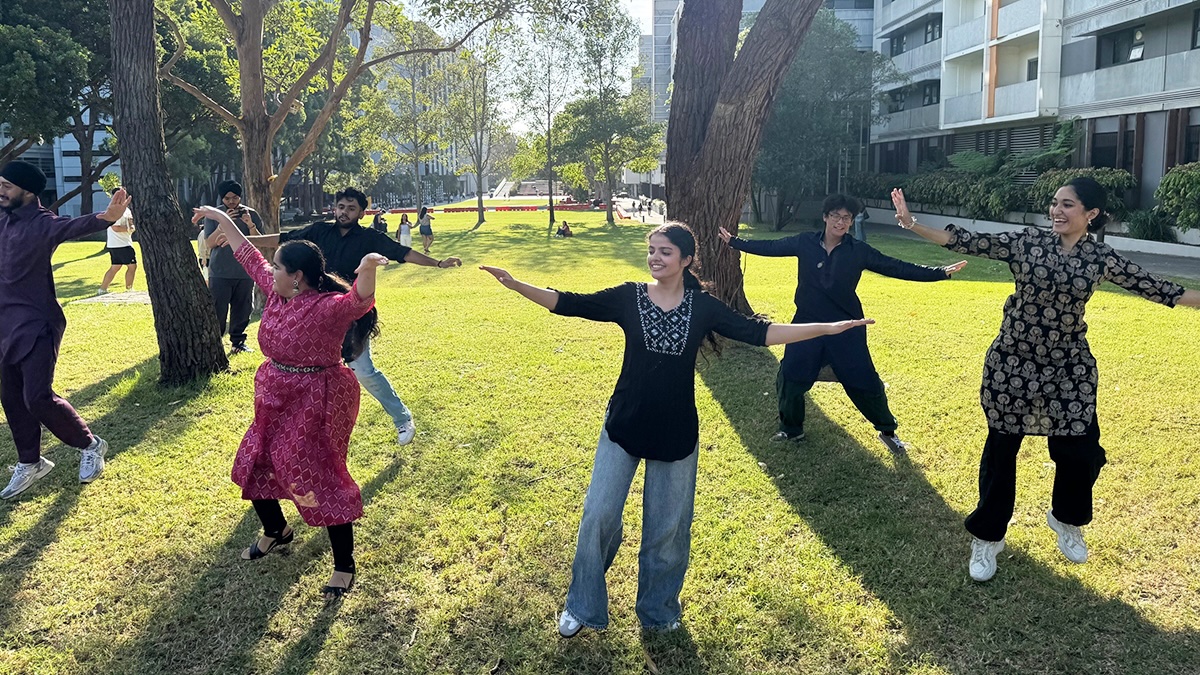
Members of the UNSW Punjabi Society performing a traditional dance.
As I was walking up campus recently, I happened upon a wonderful group of students from the UNSW Punjabi Society who were hosting a welcome event for new members. The photos above and at the top of the page were taken at the event celebrating Punjabi food, dance and culture. I was delighted to watch the students perform an impromptu dance.
The Punjabi Society is dedicated to celebrating and sharing the richness of Punjabi culture with the broader University community and build lasting friendships. They are one of the plethora of amazingly vibrant and diverse clubs that make up our student community and enable UNSW to proudly boast the highest number of clubs, sports and societies in an Australian university. It highlighted the importance of all the broader experiences and opportunities which make up university life.
Festival of colours
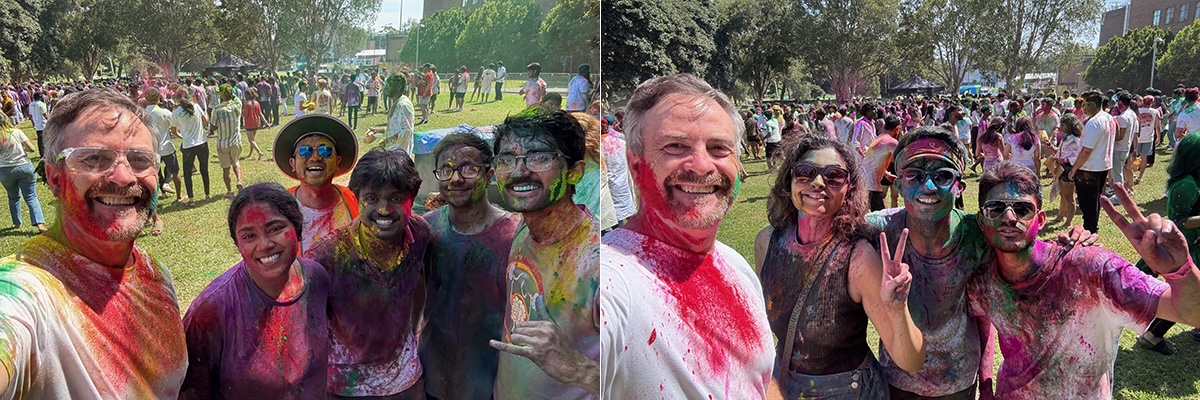
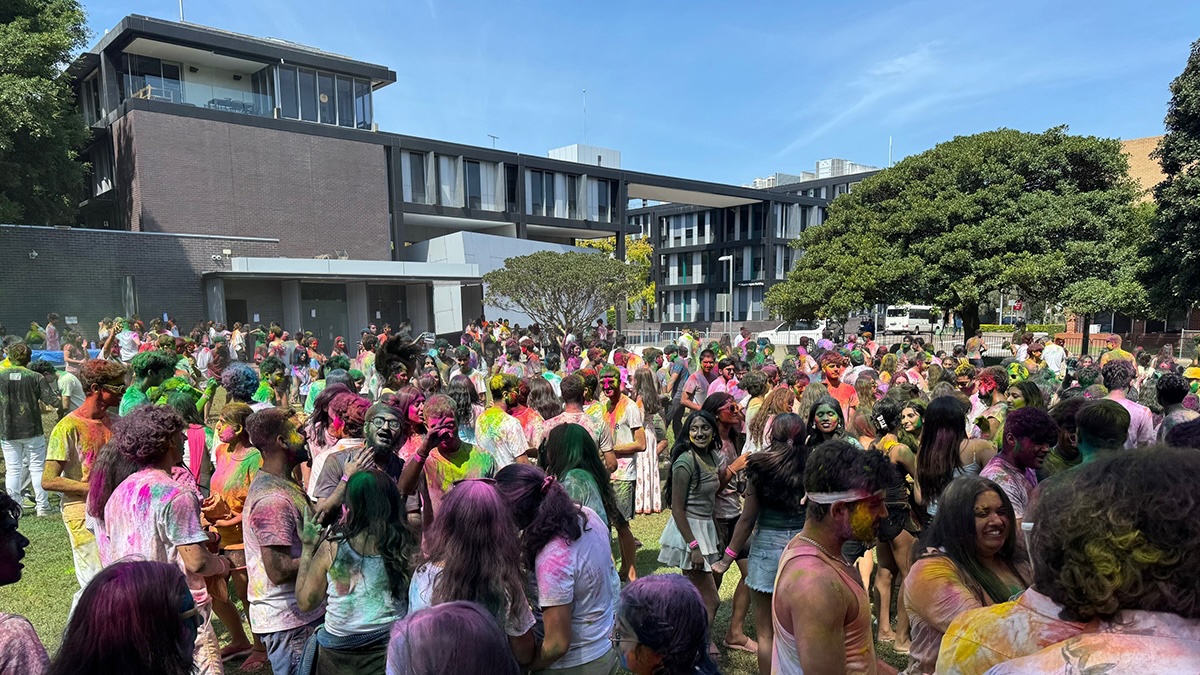
Colours on the Physics Lawn for Gulaabi, the annual Holi celebration.
The Physics Lawn came alive with colour and excitement on Saturday for Gulaabi, the annual Holi celebration organised by UNSW’s Indian Society and Hindu Society. It was wonderful to be part of this vibrant festival of colours that symbolises unity, joy and community spirit. The event brings together students from all backgrounds through music, dance, food and colour to celebrate cultural diversity and inclusivity at UNSW. I was deeply impressed to see the societies' student leaders, wonderful staff from Arc and UNSW Protective Services all working dedicatedly together to ensure the participants had an enjoyable but also safe time (remember it was a very hot day!).
Diversified: Inclusive Teaching Toolkit for educators supports inclusive learning
At UNSW, we are dedicated to providing an inclusive and accessible education for all students. Neurodivergent students can face barriers in their educational environment, highlighting the need for more adaptable systems that cater to different learning styles. To address this, the Diversified team at UNSW has developed a comprehensive toolkit to integrate Universal Design for Learning (UDL) principles into classrooms.
UDL and Neurodiversity: The Inclusive Teaching Toolkit for Unlocking Opportunities with Neurodivergent Students is designed to help UNSW teaching staff create inclusive and accessible learning environments. The toolkit has been co-designed with neurodivergent students and educators to provide practical, evidence-based strategies to enhance engagement, accessibility and student success. Find out more about the toolkit. The Diversified team welcomes your feedback: diversified@unw.edu.au
Welcoming the new Co-op cohort
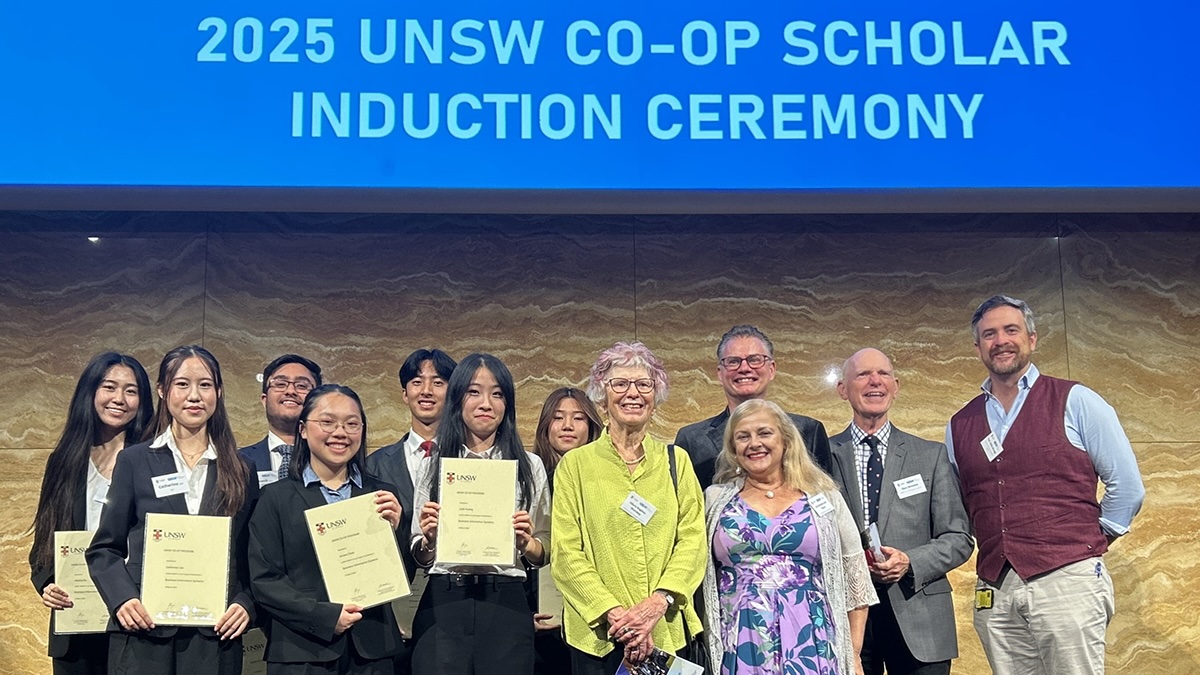
2025 Business Information Systems Co-op scholars with founders/first directors of Co-op Gary Werskey (second from right) and Hilary Hughes (middle), alumnus Luke Tristram from the 1988 inaugural BIT (now BIS) cohort, Information Systems Academic Coordinator Christine van Toorn and UNSW Vice-Chancellor and President Professor Attila Brungs.
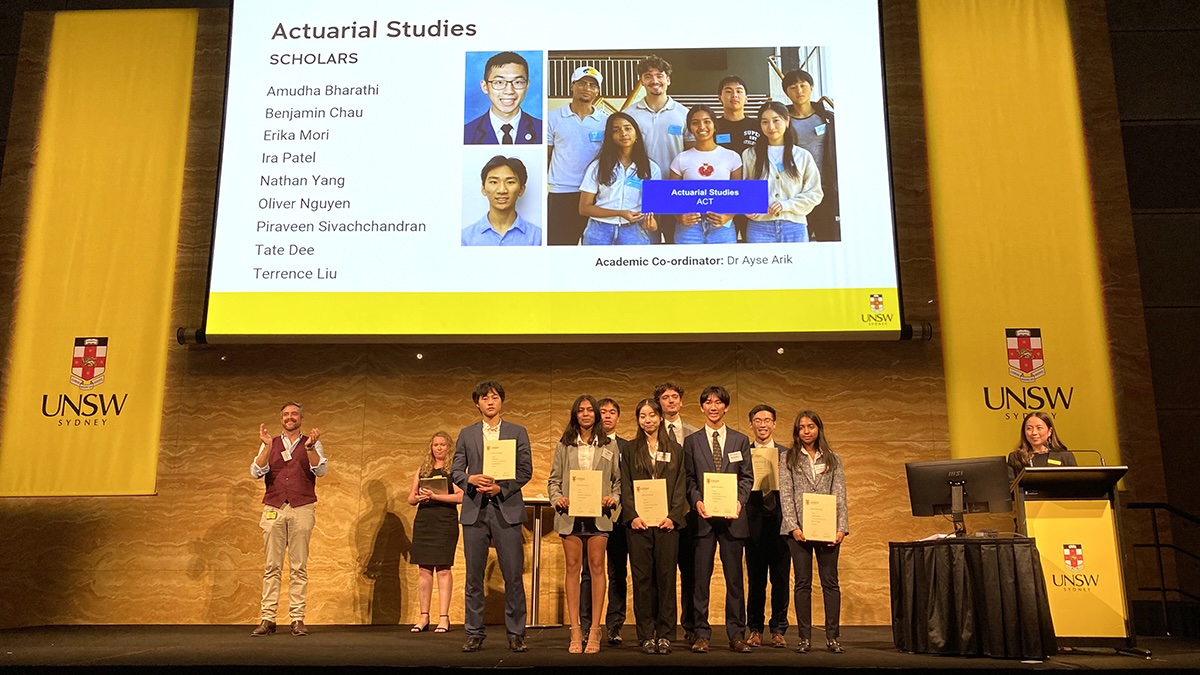
Co-op scholars in Actuarial Studies.
On Friday evening I enjoyed welcoming the new cohort of Co-op scholars to UNSW at the 2025 Co-op Program induction ceremony. The Co-op Program, now in its 37th year (I refrained from letting on exactly how long ago I was a Co-op inductee… it’s 35 years, FYI), offers industry training, professional development and financial support for selected undergraduate students in Business, Engineering and Science. It is the largest Co-operative Education Program in Australia with more than 3000 alumni. These graduates are having a real impact in industries and communities around the world.
As I said to the Co-op scholars during my speech, industry experience is more important than ever, with new demands on our workforce. At UNSW, we want to equip students for jobs in emerging high-value areas like advanced manufacturing, AI, quantum computing and renewable energy. Our focus on workplace learning helps students develop skills employers value, like critical thinking, creativity and problem-solving, and prepares graduates for complex work environments and success in a world of multiple careers.
Vale Dr Nicholas Medland
I received with great sadness the news that Dr Nicholas Medland, distinguished clinical epidemiologist at UNSW’s Kirby Institute has passed away. Dr Medland was a consultant physician in HIV and sexual health and a champion of health equity. He worked tirelessly to improve health outcomes for his patients and the community. His research at the Kirby Institute focused on the community impact of interventions to prevent infectious disease transmission. Dr Medland played a pivotal role in shaping HIV and sexual health clinical and public health practice in Australia. Dr Medland will be greatly missed by all who were fortunate to know him, and I extend my deepest condolences to his colleagues and loved ones. The Kirby Institute has published a tribute to Dr Medland.
Support following Tropical Cyclone Alfred
Like many of you, I waited with apprehension as Tropical Cyclone Alfred approached northern NSW and Queensland earlier this month. The devastation its passage and aftermath caused in those communities is very concerning. On behalf of the UNSW community, I express my sympathy for our students, staff and colleagues who have family and friends in the affected region. If you need support, UNSW’s Employee Assistance Program (EAP) provides confidential counselling free for all UNSW staff and their immediate family members. Students who need wellbeing support can visit student.unsw.edu.au/wellbeing for a range of resources and information.
There’s more to read Inside UNSW…
- Two precision medicine programs spearheaded by UNSW researchers have received $143.4 million from the Australian government. The Zero Childhood Cancer Program and the Precision Oncology Screening Platform Enabling Clinical Trials (PrOSPeCT) are revolutionising cancer care by offering highly personalised treatments through advanced genomic research, bringing hope to patients with rare and complex cancers.
- The recently launched UNSW Gender Equality Hub brings together experts from academia, law and advocacy to tackle critical gender equality issues. It will focus on four research areas: gender norms and implicit bias, gender and democratic resilience, training and empowerment, and gender equity in the workplace and in care.
- Mark Clark has been UNSW Grounds Manager for 15 years. Read this edition’s staff profile to find out Mark’s favourite place on campus (hint: it contains a jacaranda tree and a pond).
Best regards
Attila
Professor Attila Brungs
Vice-Chancellor and President
- Log in to post comments
